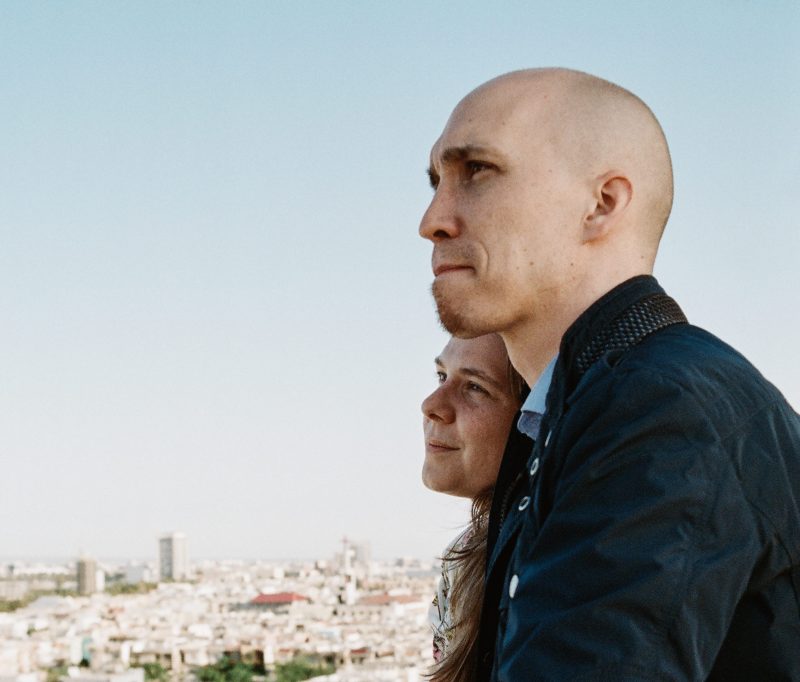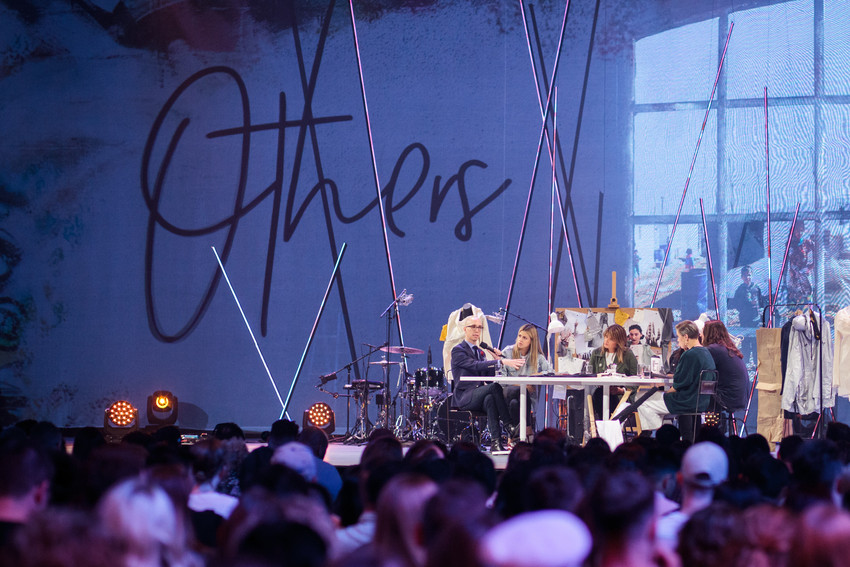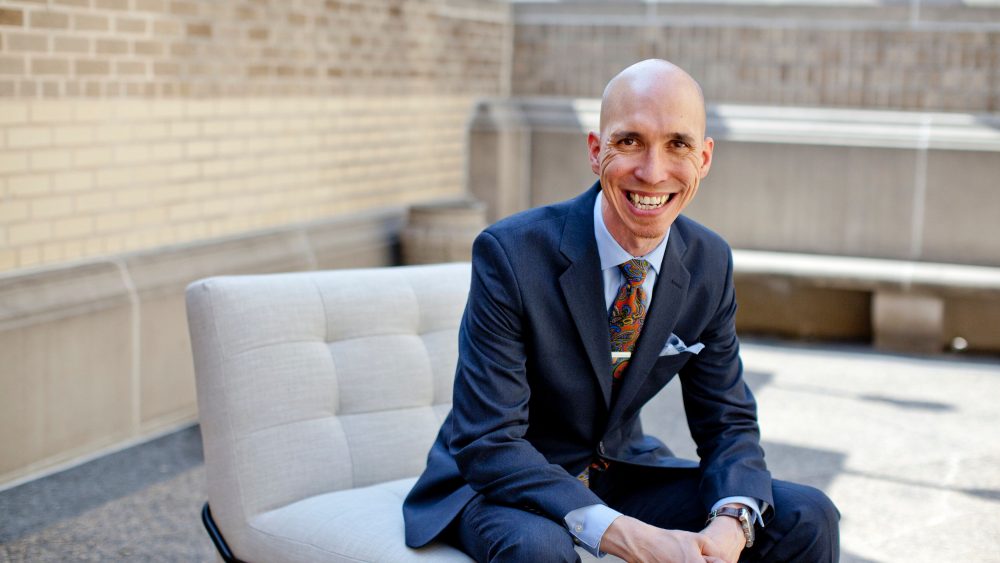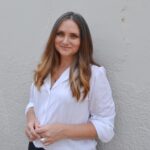He moved his family to a war zone
(But you don’t have to do the same, says Jeremy Courtney)
You don’t expect a guy who works on the front lines in Syria and Iraq to look like Jeremy Courtney.
First, he’s entirely too smiley, and his smile is one of those huge, mesmerising ones. Second, Jeremy’s a man who’s not afraid to wear colour, whether in the form of a bright handkerchief popping from the pocket of his navy coat, or a red flower on his lapel. Or both, as on the day that he spoke to Eternity News. He looks like a fashion designer or an artist, rather than a guy who crosses into battle zones to deliver aid to those who need it most.
Yet as founder and president of international relief organisation Preemptive Love Coalition, Jeremy Courtney lives a life full of juxtapositions, as he alternates between Syrian and Iraqi war-zones, and the glitz and glamour of conference stages in the Western world. Just this past fortnight, he has stood on the stage at Hillsong’s Worship and Creative Conference, and sat at the bedside of a 12-year-old Iraqi boy undergoing life-changing surgery in Brisbane.
“America wasn’t what I thought it was. Christianity wasn’t what I thought it was. The political party that our family had always touted wasn’t what I thought it was.”
When Jeremy moved to Iraq from the United States in the middle of the Iraq war, he found such global contrasts difficult to navigate emotionally, and felt betrayed by what he saw around him. “America wasn’t what I thought it was. Christianity wasn’t what I thought it was. The political party that our family had always touted wasn’t what I thought it was. I came back into the US extremely wounded and the only way that I was able to work that out was fists up aggressive, fighting, yelling.”
Although some people cheered Jeremy on as their anti-conservative champion, he knows he did very little to win over those who disagreed with him.

Jeremy with his wife Jessica in Iraq
“I was pushed out of buildings and churches, out of friendships with people that I loved. Early on I blamed them – for being close-minded, naive, for ‘worshipping at feet of Pharaoh’,” he recalls. “But over time I realised that I was the one who had to change. I’ve got to learn how to communicate in a way that they understand and tell a story in a way that would humanise this conflict … They can’t experience what I’ve experienced.”
These days, Jeremy says that though the contrast between his two worlds can be jarring, it is ultimately helpful. “It is helpful to have both experiences and to know what degree of agency we have – those of us who live well in the Sydneys, New Yorks, etc, of the world. “For the cost of a cup of coffee a day you can change a life” – these are not just marketing ploys. I’ve seen it. I live it.”
“When we engage with these things we incur the sense of having fulfilled some kind of global civic duty – dopamine, sense of goodwill…”
The Iraqi boy who has just undergone surgery in Brisbane has seen and lived this dichotomy too. His ethno-religious group is Yazidi, a small religious group that ISIS has persecuted with a vengeance. At nine years of age he was attacked, burned, kidnapped, and held captive by ISIS for several months. He was finally released in what is thought to have been a prisoner swap, with severe burns marring his legs.
When the Preemptive Love team met his family, they were living in a tent on a top of a mountain, having been pushed out of their hometown.
Just as Jeremy was trying to organise surgery that was needed by the boy as a result of the torturous burnings that had destroyed skin, muscles and tendons, the family were offered a “golden lottery ticket” to relocate to Australia.
“As a young boy he can’t play football, as all young boys long to do. He’s such a beautiful kid but some aspects of his freedom had been stolen from him. And yet all the doctors and consultants were saying that this kid’s story’s not done, he can be made well, but we’re just going to need some expert doctors and surgeons to do it.”
Jeremy reached out to Hillsong Church, who provided for the family’s initial needs in relocating to Australia. When the family’s official caseworker informed them that the surgery was not going to happen, the church stepped in, driving him to medical appointments, advocating to ensure he received the series of surgeries needed, and providing the family with accommodation near the hospital.

Jeremy speaks at conferences all over the world (here, he is at Hillsong’s recent Creative Conference in Sydney). The transition from war zone to conference stage can be difficult, he says.
“It has been a beautiful collaboration,” Jeremy says. “A very global story and also a very local story. This is his home now. He may be new here but he will never, ever forget the kindness that has been shown to him – by Australians, Hillsong, the doctors and nurses. It’s helped rewrite his story and instil in him a love for this country. He is now proudly Australian.”
Connecting global crises with local action is a challenge Jeremy is very familiar with. He says in many ways it’s far easier to engage with foreign issues and conflicts than it is to be “on the frontlines where we live” because most of us will have been exposed on some level to what’s going on in Syria and Iraq, or the drought in the Horn of Africa, or the Rohingya genocide in Myanmar.
“Preemptive Love is a posture. It’s not about location, it’s about whatever’s going on in your neighbourhood and pressing in to the things or people that scare us most, locally.”
“When we engage with these things we incur the sense of having fulfilled some kind of global civic duty – dopamine, sense of goodwill… Domestic policy –working it out in our own backyard – that’s far more difficult than the thing that we often get more credit for.”
Jeremy is wary of criticisms often levelled at so-called “clicktivism” and “thoughts and prayers” activism, saying that though there can be merit in those concerns, it can also be self-righteous virtue-signalling.
He cautions that we “lose something if we lionise the most extreme side of the spectrum” (like what he and his wife are doing, living in Iraq) and allow that alone to define what constitutes being on the front line.
“We all live on the frontlines of people’s pain, people’s problems. The terrorists that we find in Syria and Iraq are coming from places like Australia, Belgium, America and Canada,” he says, asking “Who lived around them? Who reached out to them or didn’t reach out to them? Or who cursed them at the coffee shop or who failed to take their hand?”
“A bunch of small acts of humility and kindness that really add up to transforming lives”
It’s not strictly an issue of blame, Jeremy says, warning against self-flagellating that takes helpful self-reflection too far. But he wants to recapture a sense of agency: that you can change the course of history by building stronger relationships where you live. Not everyone can, or should, move to Iraq.
From Jeremy’s perspective, what we do on the front lines right where we live has massive implications; from what we teach in our schools and preach in our pulpits, to how we respond to terrorism, and who we vote for.
“We’ve got to know the people we’re talking about … and in many of these global conflicts, they are in our backyards. People from these conflicts now live in Australia and America.”
To help make this happen, Preemptive Love has recently launched a global initiative called ‘The Frontline’ that aims to gather people together so they can engage on their local front lines with the emotional, mental and spiritual support of being part of a community.
“Preemptive Love is a posture. It’s not about location, it’s about whatever’s going on in your neighbourhood and pressing in to the things or people that scare us most, locally.”
Jeremy insists that we all have to keep at bay the cynicism of questions like “What can my ten dollars do?” He describes his work as being “built on the backs of ten-dollar gifts” that result in an Iraqi boy receiving surgery that will one day allow him to play soccer with his friends.
He cites the example of Nora, who was driven from her home in eastern Aleppo. When she returned, with her children and 83-year-old bedridden mother, her home was partially destroyed, missing windows, a door and plumbing. She was forced to choose between an unsafe refugee camp or her unsafe home. After an offering was taken up by Hillsong’s Youth ministry, Preemptive Love were able to rebuild her home, along with four others.
It’s all as simple as “a bunch of small acts of humility and kindness that really add up to transforming lives” Jeremy says, before reading aloud from Nora’s email:
“You gave me the opportunity to close my door. To even have one. You made me feel human again”.
Email This Story
Why not send this to a friend?


